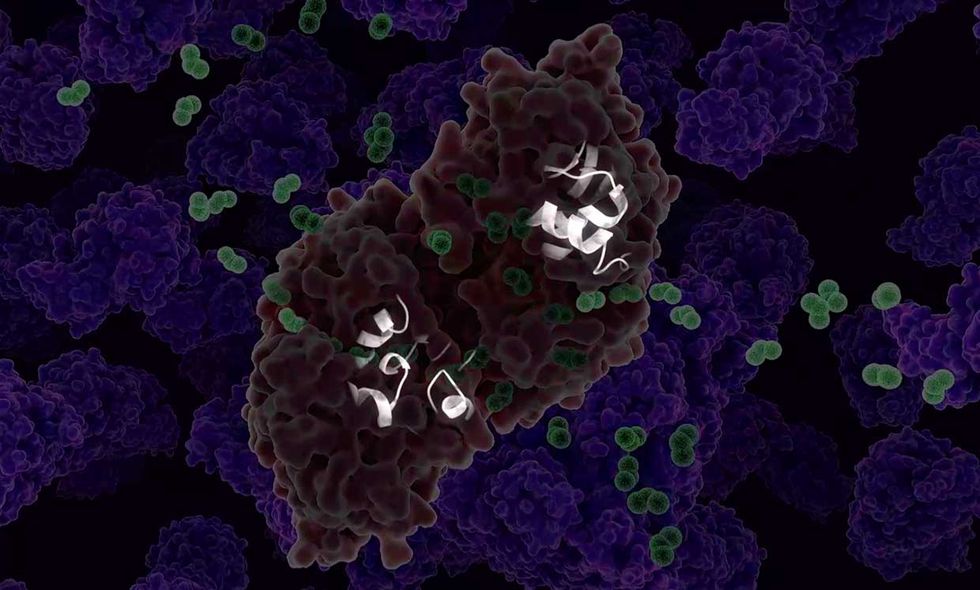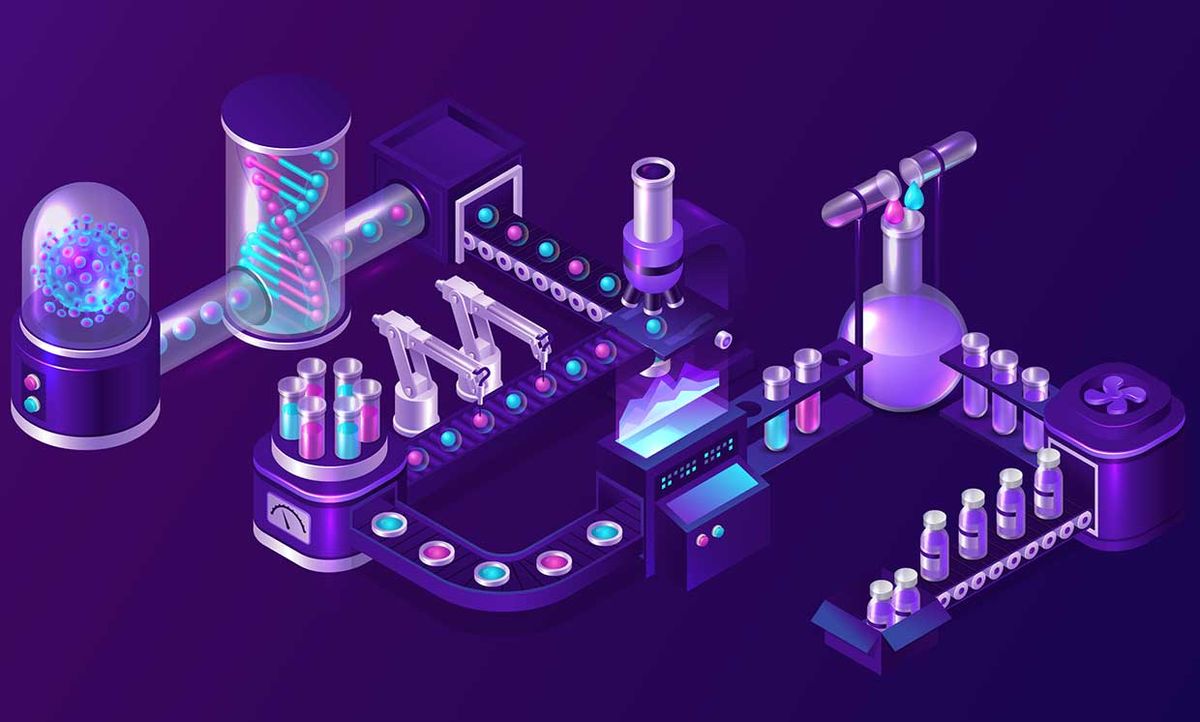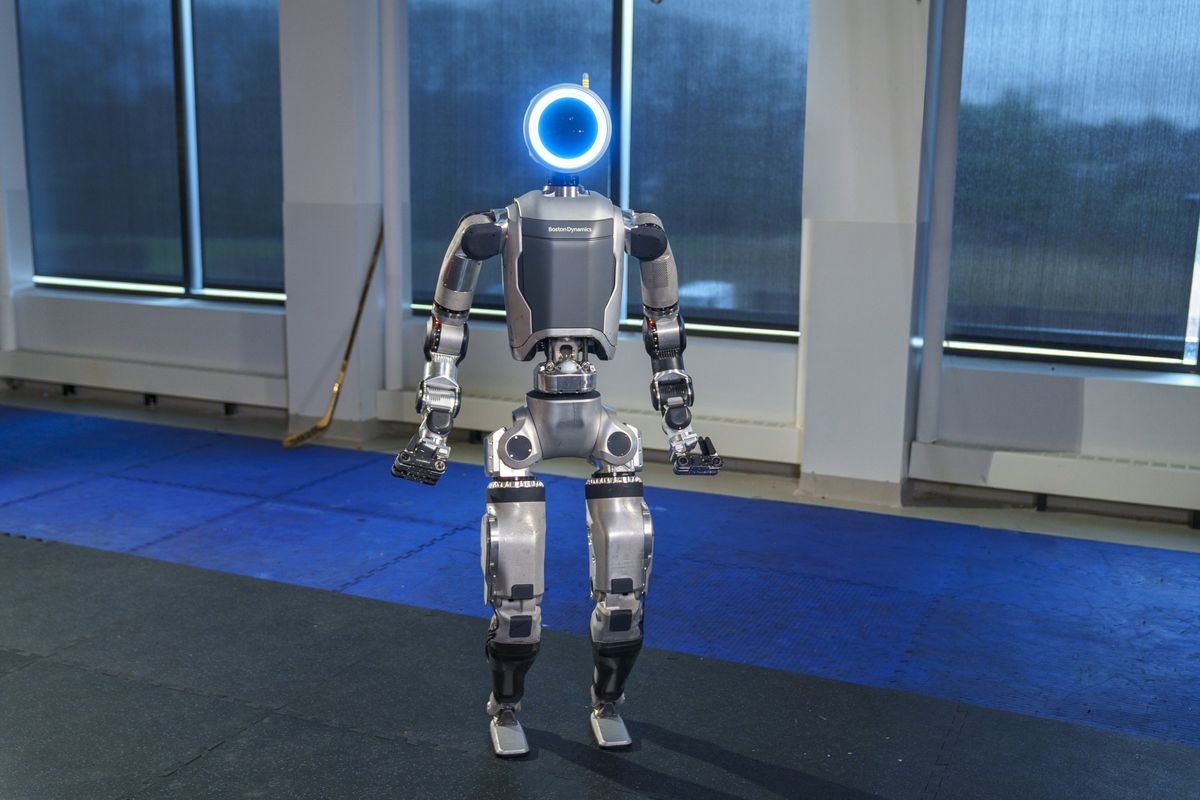Researchers are focusing more and more attention on using artificial intelligence to discover and design new medicines, and a new start-up with strong backing announced last week that it is jumping into the field with big ambitions.
Cambridge, Massachusetts–based Generate Biomedicines, which emerged from stealth mode on 10 September, says it is using machine learning algorithms and big data to design biological compounds to combat 50 of the top targets associated with disease. The company is also developing candidates for therapies that would fight SARS-CoV-2, the virus that causes COVID-19.
Generate Biomedicines is backed by Flagship Pioneering, a funder and builder of start-up companies. It’s roster includes Moderna, which is a leader in the race to develop a vaccine against COVID-19.
“We are creating new molecular entities, and generating molecules that you wouldn’t be able to discover through traditional means,” says Molly Gibson, co-founder and chief innovation officer at Generate Biomedicines. “We think this type of technology breaks you away from that discovery paradigm of searching through existing molecules or searching through close relatives of existing molecules.”
Traditional protein drug discovery methods, such as high-throughput screening, involve a lot of trial and error. Algorithms and high powered computing could greatly shrink the amount of time scientists spend searching for new drug candidates.
“If you can compute sequences in silico, you’re speeding up the time it takes to come up with an effective candidate,” says Gini Deshpande, founder and CEO of AI-based drug discovery company NuMedii, who is not involved with Generate Biomedicines. “There are a number of players in this space coming at it from different angles,” Deshpande says, noting that there is a huge unmet need for technologies that can reduce the time and cost of drug development.
Deshpande says that there are at least 17 different companies using machine learning to aid the discovery of biologics, or protein-based drugs—the kind of medicines on which Generate Biomedicines is focused. Deshpande estimates that over 200 more companies are applying AI to small molecules—a category of drugs characterized by their low molecular weight. “So they’re certainly not the only player in the space,” she says.
Avak Kahvejian, founding co-CEO of Generate Biomedicines, says his company stands out in part because its machine learning platform is capable of teasing out “the true, underlying foundational principles by which proteins operate,” he says. Other companies “are using machine learning to find useful relationships in data.”
The company’s computational platform is trained on a vast database of known proteins: 160,000 protein structures and 190 million protein genetic sequences, according the company. The system looks for statistical patterns linking a protein’s genetic sequence, three-dimensional structure, and function, and develops a set of governing rules for those patterns—similar to the way algorithms process natural language and images.

After learning, the system can then be focused on the synthesis of new, custom proteins with therapeutic potential. The platform continually learns from every new protein generation campaign through a generate-build-test cycle.
“With this vast amount of training and learning, we can now run the process forward, and use it to generate a number of beautiful solutions that are unimaginable today—undesignable by the human hand,” says Kahvejian. “These general rules are much more valuable, as it means you don't have to reinvent the wheel every time you see a new class of proteins. It also means you can immediately sample from all the sets of protein classes that nature never invented.”
Generate Biomedicines’s drug candidates will include proteins of any variety—such as antibodies, peptides, enzymes, and cytokines—that can bind to, disable, or activate biological targets associated with disease. The company aims to take its drugs all the way through human trials and to market, says Kahvejian. “The breadth [of possible therapies] is enormous and daunting, and it’s nothing one company can really commercialize in and of itself,” he says. “So partnering will be part of the strategy.”
In response to the COVID-19 pandemic, Generate Biomedicines has applied its platform to designing antibodies and peptides that can neutralize the SARS-CoV-2 virus. “We immediately jumped on trying to figure out what’s known about the virus and the protein structures involved in its infectivity, and use our platform to generate antibodies to block those structures,” says Kahvejian. Those antibodies are now being tested in the lab in collaboration with the Coronavirus Immunotherapy Consortium, he says.
Emily Waltz is a features editor at Spectrum covering power and energy. Prior to joining the staff in January 2024, Emily spent 18 years as a freelance journalist covering biotechnology, primarily for the Nature research journals and Spectrum. Her work has also appeared in Scientific American, Discover, Outside, and the New York Times. Emily has a master's degree from Columbia University Graduate School of Journalism and an undergraduate degree from Vanderbilt University. With every word she writes, Emily strives to say something true and useful. She posts on Twitter/X @EmWaltz and her portfolio can be found on her website.



